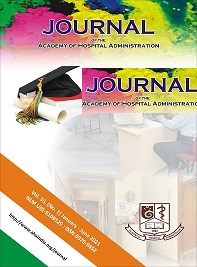Education
Education –Hospital & Health Systems planning, operations management, material management, Facility Clincial, Supportive Services including Diagnostic Services, and Auxillairy Services planning. In Public Health it
Training Courses – Hospital & Health Care Organizations Management Courses, Quality & Accreditation (NABH) for Hospitals & CHOs, 3 Day National Quality Assurance Standards (NQAS) course (For Public Health Facilities –DH,SDH,CHC (FRU ) and, PHC , 5 Days NQAS,Assessor Course . Few courses being conducted presently are - PGDHM, QM&AHO Courses, NQAS ( PH Facility), Medical Record Management Course, Health & Law Course, MBA (HCM) in colloboration , Six Sigma & Lean System
LONG TERM PROGRAMME
1. MBA Hospital Administration [UGC RECOGNIZED] Lateral Entry Duration -1 year.
2. MBA Hospital Administration [UGC RECOGNIZED] Duration -2 years.
3. PG Certificate in Quality Management & Accreditation of Health Care Organization [QM&AHO]- Session Starts Every Year - Jan & Sept [6 MONTHS CERTIFICATE PROG]
SHORT TERM PROGRAMME -
All short term programmes jointly Conducted by HN Bahuguna Uttarakhand Medical Education University & AHA at AHA House NOIDA.
- RAQM- 4 Days
- NQAS - 5 Days
- MDP - HOSP ADMN- 4 Days
- MDP - Nursing Administration - 4 Days
- MDP- Nursing Excellence - 4 Days
Click here for Eligibility, Fees and other details






